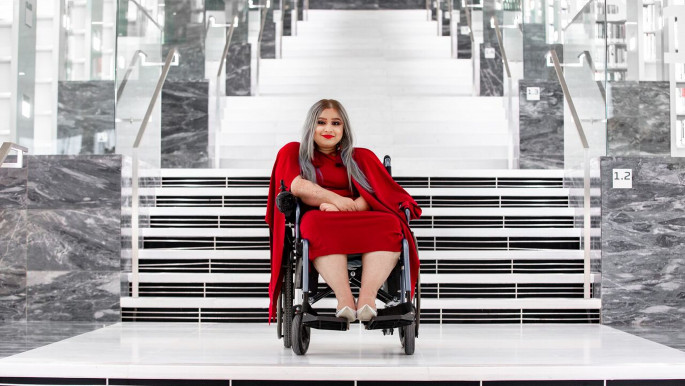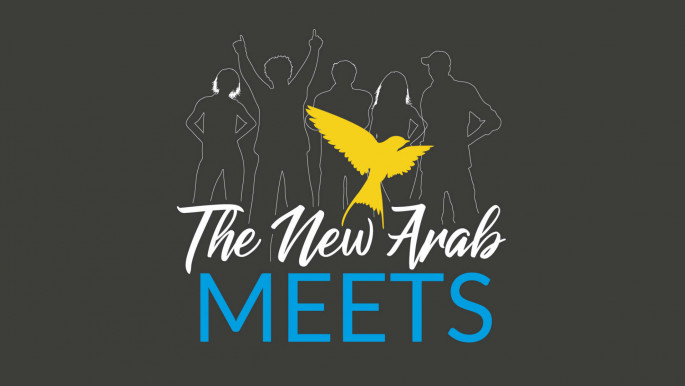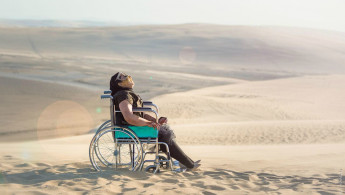How one expat is defying the social stigma of disability in Qatar
Nobody could ever envisage the hardships this young lady has experienced. At the age of four, she was diagnosed with the Duchenne Muscle Dystrophy condition, a genetic disorder characterised by progressive muscle degeneration and weakness. The genetic condition made it difficult for her to walk, and she now uses a wheelchair to move around.
But Nawaal is not your average individual. She has challenged this condition and vowed to use her disability as her strength by creating a platform to give a voice to people with physical disabilities.
For the masses, Nawaal's face is well-recognised due to her proactive awareness campaigning and comic events that enlighten the minds and hearts of many. She has previously been part of the Doha Woman's forum and was also one of the TEDx speakers at the Birla Public School in Doha.
Not one to see her disability as an obstacle, the 19-year-old Pakistani expat uses her event opportunities to laugh and talk about it to help emphasise the dire need to spread awareness in society.
Born in Qatar, Nawaal's entire life has been about the small Gulf state. Her sense of patriotism is apparent from the various events and projects she has participated in.
This is perhaps why she decided to launch the Muscular Dystrophy Qatar, a support group through which she hopes to provide "voiceless individuals with physical disabilities" the confidence to come forward and have a sense of affinity.
Unfortunately, the high level of stigma in the society compels one to remain silent of their defects, which she says is wrapped up, rather than talked about to find solutions. Nawaal believes that people in Qatar are "uncomfortable" around those with physical disabilities as they rarely see them in public, or local media.
 |
Not one to see her disability as an obstacle, Nawaal uses her event opportunities to laugh and talk about it to help emphasise the dire need to spread awareness in society |  |
"I attended a British curriculum school in Qatar until the age of 10, it was an international school. But then they told my parents it would not be possible for me to continue studying here," Nawaal tells The New Arab.
"I will never forget being blackmailed out of education due to my disability. Since I was not on a wheelchair when I was first diagnosed, the school was clueless to what accessibility meant and what exactly my disability was."
Growing up, her parents did not have a support system or ever witnessed someone with her disease to give them hope or the necessary advice on what needs to be done. This is why the launch of the Muscular Dystrophy Qatar was imperative for her, since it was designed to motivate the issue of accessibility in Qatar. Nawaal feels there is a desperate need for more people to take action rather than merely talking about what needs to be done to improve the community.
Having suffered from an ocean of hurdles, it was her firm willpower that has kept her going all these years and maintaining a sense of independence in the activities she does.
"I used to be independent enough to get dressed and go out with support, but this has become harder since I feel weak and require help with nearly everything," she explains.
"My parents are my strength since they have always encouraged me and wanted me to be independent."
Nawaal has spent the last year and a half searching for venues for her Muscular Dystrophy awareness events, but she has struggled in securing a location.
"A lot of the places backed out due to a lack of understanding of the disability and would not give me an opportunity to explain or showcase my previous events, which had a huge turnout," she tells The New Arab.
 |
|
| Nawaal has used her disability to help raise awareness in Qatar [Nawaal Akram] |
However, it was on September 24 when Nawaal finally managed to launch the Understanding Disability event at the Qatar National Library as part of Muscular Dystrophy awareness month.
The outcome was fruitful since the panel featured doctors and people with muscular dystrophy who attended with their families.
"For those attending, it was accessible in every possible way – from the library providing assistive equipment, to software and workshops, to support and catering the needs of individuals of all ages with different conditions like autism, hearing, physical and visual impairment."
The purpose of Muscular Dystrophy Qatar is to connect patients and their families and provide them with the support group system. Also, it seeks to enhance the quality and standardisation of care of patients with the disease, and the paramount role of awareness in society and for health care providers.
Nawaal is also working on an art project with a fine art photographer. "My hopes are to develop this into a global exhibition to prove that disability is beautiful and a positive part of the culture," she says.
Meeting someone like Nawaal is an eye-opener because it makes you overcome your own inner weaknesses the way she has done. The existence of Muscular Dystrophy Qatar is vital in dispelling stigma and encouraging those in "hiding" to finally come out of their shells.
Follow her on Instagram: @bohemian_danoosh
The New Arab Meets: Click on our Special Contents tab to read more on our ever-growing archive of interviews:




